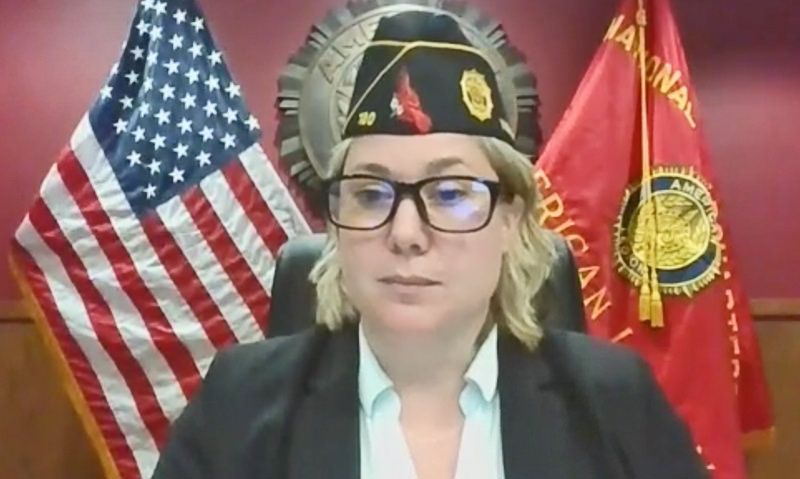
Deputy Director Katie Purswell offers up American Legion Support for the Commander John Scott Hannon Veterans Mental Health Care Improvement Act of 2019.
Katie Purswell, deputy director of Health Policy for The American Legion, testified on Sept. 9 before the Senate Committee on Veterans’ Affairs on S. 785 – Commander John Scott Hannon Veterans Mental Health Care Improvement Act of 2019. The bill aimed at reducing veteran suicides is named in honor of retired U.S. Navy Cmdr. John Scott Hannon, who served his country for 23 years as a leader of SEAL Team Two, a member of SEAL Team Six, and Special Operations and policy staff officer at U.S. Special Operations Command. Six years after he retired from the Navy, Hannon died by suicide on Feb. 25, 2018. The bill passed the Senate in August and is expected to be taken up by the House Committee on Veterans’ Affairs in the coming weeks.
"My commitment is to see a victory, not for the Senate Veterans' Affairs Committee, not for the House Veterans' Affairs Committee, but a victory for those who served our country, our veterans, and the organizations that are attempting to save their lives and provide mental health care and treatment," said Sen. Jerry Moran, chairman of the Senate Committee on Veterans’ Affairs.
“A heartbreaking truth of veteran suicide is that nearly every veteran has been touched by it in some form or fashion,” said Purswell during her testimony. “The things that we have done and seen are now a part of us and affect us in ways we can have trouble understanding. From complications with assimilation into civilian life to reliving past traumatic experiences, we struggle at times to find a way to cope.”
Transitioning from active service is a crucial and stressful phase in a veteran’s life. Access to mental healthcare during this time is critical to reducing the suicide rate. “Through transition assistance, prevention, research, awareness and appropriate mental health-care services, we feel this whole health cycle approach will be effective in reducing veteran suicide,” Purswell said.
One of the provisions in the bill calls for a review of the data and research surrounding veteran suicide during the first year of separation from service. By better understanding this data, the Department of Veterans Affairs (VA) and other support programs will be more equipped to develop strategic plans to address suicide during the transition period.
Another provision introduces a pilot program that would provide veterans access to alternative and complementary health-care programs such as annual therapy, aromatherapy, sports and recreational therapy, art therapy and post-traumatic growth programs. The American Legion supports this provision through Resolution No. 20: Suicide Prevention Program.
The success of these programs relies heavily on adequate staffing. One of The American Legion’s major focuses has been the recruitment and retention of the best-qualified individuals to care for our veterans.
“Through our System Worth Saving program, we have found that staffing and retention are often the culprit of delays in accessing mental healthcare,” said Purswell. “These findings are in line with the VA’s Office of Inspector General report which determined mental health providers are among the most critical in need.”
Provisions in the bill that specifically target women veterans and address the gaps in gender-conscious care and outreach programs are also included in the bill. Through Resolution No. 147: Women Veterans, The American Legion aims to ensure that the needs of the current and future women veteran populations are met.
“It is time to create an inclusive environment for them in VA facilities and represent them in staffing positions, programmatic design, and research,” stated The American Legion’s written testimony.
“While we understand the gap analysis and report on women veteran utilization of health-care sections have been moved back to the Deborah Sampson Act, we are proud to say we support both bills and their focus on improving care for all eligible veterans in a more inclusive manner,” said Purswell.
Inclusivity of minority and rural veterans is paramount. Programs like the American Legion ATLAS Pilot Program, in conjunction with the bill’s expansion of telehealth services, will expand mental health-care access to these long-underserved veteran populations.
“Our organization understands mental health care does not have a one size fits all solution in preventing suicide. It is a complex problem that needs be treated at an individual level as each veteran’s situation is unique," Purswell said. “As a Legion member, and as a veteran who has been touched by this tragedy, I am proud to say the American Legion supports this bill in its entirety."
View the full hearing here.
- Legislative

